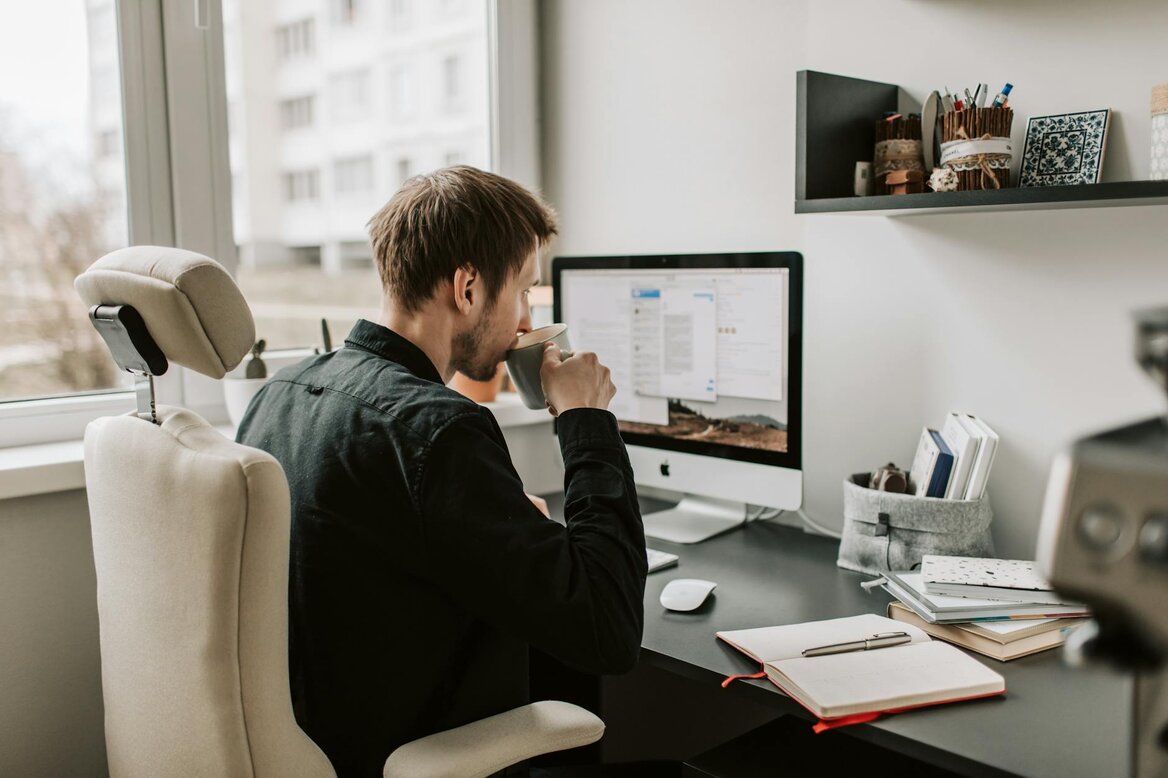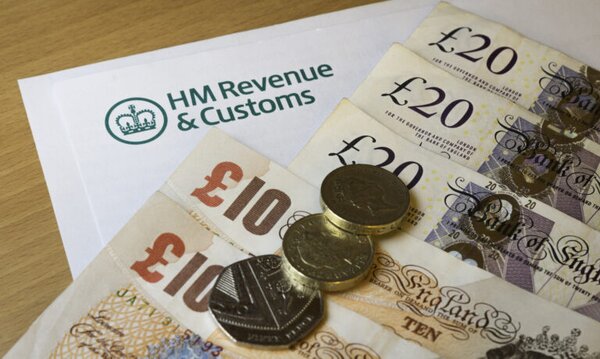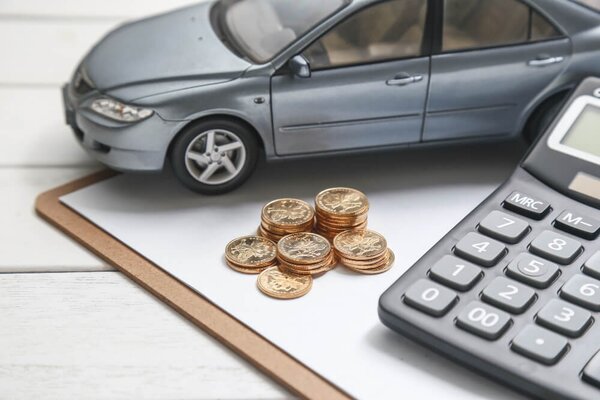Let’s Break This Down Together...
Many people struggle to tell which costs are business and which are personal. It’s a common worry because HMRC expects you to get it right.
This article walks you through what counts as a business expense and how to handle mixed-use items. It also explains the steps, tools, and habits that keep your finances clean and HMRC-ready.
By reading this, you’ll learn how to avoid mistakes, stay compliant, and protect yourself legally. Let’s dive in.
Keeping Your Business and Personal Finances Separate
Keeping your business and personal expenses separate isn’t just good practice; it’s essential for tax compliance. Clear separation protects your tax position and maximises legitimate deductions. Keeping personal and business expenses distinct ensures accurate records and simplifies your financial management.
HMRC expects proper records, and mixing finances can trigger costly investigations. Mixing personal and business expenses can create confusion in your records and make tax reporting more difficult. Getting this right simplifies tax returns and provides clarity on your business’s true performance.
Pie tax‘s smart receipt scanning sorts your expenses automatically, saving hours of manual work. Using automated tools to separate expenses can save time during tax season and when preparing financial statements. Or if you’re just here to get to grips with it all, let’s break it down!
What Actually Counts as a Business Expense?
For something to qualify as a business expense, HMRC requires it to be “wholly and exclusively” for business purposes. This is their favourite phrase, and they stick to it firmly.
Common allowable expenses include office costs, travel (not commuting), staff wages, and professional subscriptions. When an expense has both personal and business elements, that’s where things get tricky. Personal items, such as your mobile phone or laptop, often require careful allocation between business and personal use.
These dual-purpose expenses need careful handling. HMRC tends to be quite strict about mixed expenses. You should also track the use of a personal vehicle for business purposes and keep records of business calls made from a personal phone. If there’s a significant personal element, they may challenge the whole claim. I once claimed a laptop at 100% business use, only to face awkward questions about family photos stored on it. It’s also important not to make personal purchases with business accounts, as this can cause issues during tax reporting.
Accurate separation of these expenses is especially important during tax season to ensure proper tax reporting and avoid problems with HMRC.

How to Split Business and Personal Expenses Properly
First things first, open separate bank accounts. Having a dedicated business account creates a natural boundary between your finances. Opening dedicated business bank accounts, rather than using the same account for both business and personal transactions, is crucial for accurate record-keeping and legal protection.
Use a business-only credit card for work purchases. This simple habit prevents accidental mixing of expenses and creates a clear audit trail. Having a business checking account helps manage business transactions efficiently and maintains a clear separation from your personal accounts.
Create a clear system for handling split costs. For example, if you use your mobile phone for both business and personal calls, work out a reasonable percentage split. Regularly reviewing your bank statements ensures all expenses are correctly categorised and that personal accounts are not used for business expenses.Keep detailed records of how you calculated any split. A note saying “75% business use based on itemised bill analysis” is much better than a vague estimate.
Using a personal bank account for business purposes can create risks and confusion, so separating personal and business finances is essential. Review your expense splits regularly. As your business changes, so might the proportion of business versus personal use.Separating business and personal finances, including separating business activities and accounts, is essential for compliance and accurate record-keeping.
Technology Makes Expense Splitting Easier
Modern accounting software can tag transactions as business, personal, or split. This makes tax time much simpler and reduces the risk of errors.
Receipt scanning apps let you capture and categorise expenses on the go. Storing digital receipts ensures easy access, better organisation, and improved record-keeping for tax preparation.
Set up automatic bank feeds to pull transactions directly into your accounting system. This helps you monitor your business's cash flow and maintain a spotless financial record, while also reducing manual data entry errors and saving valuable time.
Cloud storage ensures your expense records and supporting documents are safely backed up. Everything remains easily accessible if HMRC asks questions.
Using technology to manage business accounts streamlines expense tracking and supports legal and tax compliance.

Common Expense-Splitting Mistakes to Avoid
Claiming 100% of dual-purpose items without proper justification is asking for HMRC trouble. Your home internet likely has some personal use, so be realistic.
Inconsistent allocation approaches between tax years raise red flags. If your car was 70% business use last year, a sudden jump to 90% needs a solid explanation.
Poor record-keeping makes defending your position nearly impossible if questioned. Save those receipts and document your methodology clearly. It's also crucial to keep business funds separate from personal accounts to avoid confusion and errors when tracking expenses.
Treating occasional business use as sufficient justification for full expense claims doesn’t work. Using your laptop for one business email doesn’t make it a 100% business asset. When planning your finances, set aside reserves for unexpected expenses and ensure that personal costs are never claimed as business expenses.
When HMRC Might Question Your Expense Split
Unusually high claims compared to your industry average can trigger HMRC interest. If similar businesses typically claim 5% for travel and you’re claiming 25%, expect questions.
Random compliance checks happen regularly; it’s just part of HMRC’s process. Being prepared with good records makes these much less stressful. Accurate tax reporting is essential to avoid issues during these checks and to ensure compliance with HMRC requirements.
Inconsistencies in your accounts or sudden changes in expense patterns might prompt a closer look. HMRC’s systems are increasingly sophisticated at spotting anomalies, so maintaining consistency across each tax year is crucial.
If challenged, having a clear methodology and supporting evidence for how you split expenses becomes invaluable. This can make the difference between a quick check and a full investigation. Proper expense splitting also makes it easier to file taxes accurately and efficiently.

Piercing the Corporate Veil: Why Separation Matters Legally
When it comes to business and personal expenses, the stakes are higher than just tax headaches; your personal assets could be on the line. “Piercing the corporate veil” is a legal term that describes what happens when a court decides a business owner hasn’t kept their personal and business finances separate. In these cases, you could be held personally liable for business debts, putting your savings, home, and other personal assets at risk.
This risk is especially real for small business owners and sole traders, but even limited companies aren’t immune if the separation between business and personal finances isn’t crystal clear. That’s why it’s essential to treat your business as a separate legal entity. This means running all business transactions through a dedicated business bank account, using a business credit card for business expenses, and never dipping into personal funds for business purposes (or vice versa).
Maintaining this separation isn’t just about opening a separate business bank account; it’s about building habits that keep your business finances spotless. Use accounting software to track every business expense and income stream, and make sure you’re only claiming legitimate business expenses that are wholly and exclusively for business purposes. Keep detailed records of all business transactions, from invoices to tax payments, so you can easily demonstrate the boundary between your business and personal finances if ever questioned.
By keeping your business and personal expenses separate, you’re not just making tax time easier; you’re protecting yourself from being personally liable for business debts and liabilities. This separation also helps you avoid costly mistakes when filing taxes and saves time by keeping your records organised and clear. For small businesses, the message is simple: treat your business’s money as separate from your own. Whether you’re a sole trader or running a limited company, keeping your business finances separate is the best way to safeguard your personal assets, stay compliant, and run your business responsibly.
Final Thoughts
Splitting business and personal expenses correctly takes a bit of effort but saves enormous headaches at tax time. The initial setup pays dividends throughout the year. Choosing the right business structure helps you keep business income and personal income separate, making tax compliance and record-keeping much easier.
Consistency and clear records are your best defence if HMRC ever questions your approach. Document your reasoning and keep supporting evidence.
Remember the “wholly and exclusively” rule as your guiding principle. When in doubt, be conservative with claims rather than aggressive.
A small investment in proper expense management throughout the year prevents major tax problems down the road. Your future self will thank you at tax return time.

Pie tax: Simplifying How to Split Business and Personal Expenses Tax
Getting your expense allocation right becomes simple with the right tools in your corner. Pie tax was designed specifically to make this aspect of tax management painless.
The UK’s first personal tax app, Pie tax shows you exactly how each expense affects your tax bill in real-time. Pie tax is ideal for the small business owner, the self employed, and those running a sole proprietorship. This takes the guesswork out of financial decisions.
We’ve built industry-specific guidance right into the app, so you’ll know exactly what expenses are typical for your type of business. The app helps you manage business funds and keep your business's money and personal needs separate. This helps you claim confidently without overstepping.
Fancy seeing how much easier your tax life could be? Take a look at what Pie tax can do for you. Pie tax helps you keep funds separate, avoid mixing personal costs with business liabilities, and makes separating personal and separating business expenses straightforward. There are no monthly fees for using Pie tax, making it a cost-effective solution.

Quick and Easy Guide to Add Expenses and View Real Time Tax Figure
Follow these steps to proceed
Swipe right on any eligible transaction to add it as an expense you want to declare on your tax return, moving it to the ‘expense’ tab.Step 1

Once you’ve added all the information, you can view your real-time tax figures on the "Homepage" of the Pie App. Step 2












